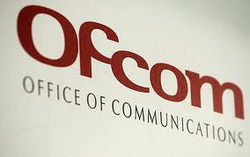On May 4, 2012, OFCOM awarded four new community radio licences
http://www.thejournalofregulation.com/spip.php?article1443

On May 4, 2012, Ofcom announced the award of four new community radio licences for services in the south west of England. Community raido service are provided on a not-profit basis focusing on the delivery of specific social benefits tot a particular geographical community or a community of interest. The new awards mean that 251 community radio licences have been awordes for four services in Cornwall and Devon. Some radio services are about health thematics or weillbeing and lifestyle topics, others provide community radio services, for example to villages.
© thejournalofregulation
Through this example of new licensing for radio by the regulator, there are concerns of public services.
We are far from economic assertions made shortly before by the Italian Minister on television, that the State should not give for free what has value. Here, the consideration of the public service (social cohesion, the community of interest, geographical cohesion) justifies inversely that it gives free radio licences in order to promote the existence of radios and strengthen, or safeguard the social link.
Similarly, the allocation of frequencies on the auction model, recently advocated by the regulator of the India for mobile television, in order to the State makes as much money as possible for making to the public domain available, is not a reasoning of the regulator.
It is in the United Kingdom, a country that are often quickly presented as "liberal" but which is before the country where was thought the regulation, in other words the balance between competition and other principles, that social cohesion justifies the State conferred without consideration of resources that the social group remains unified.

your comment